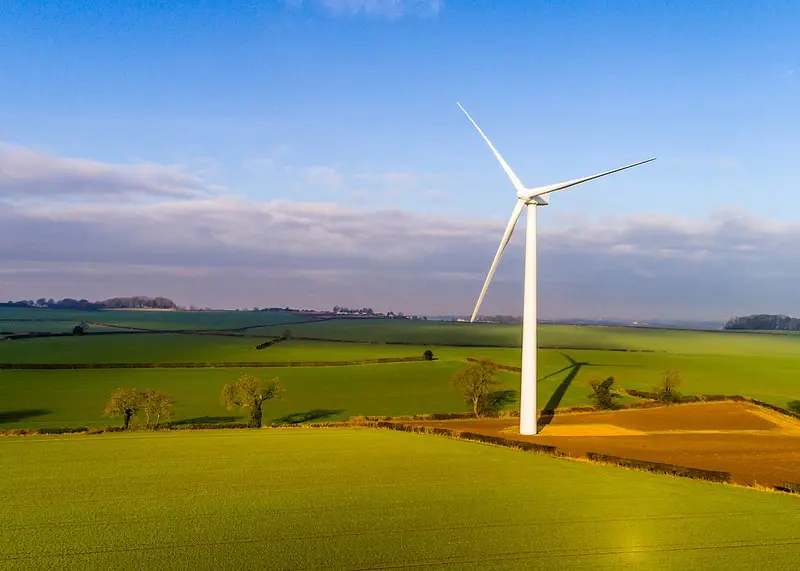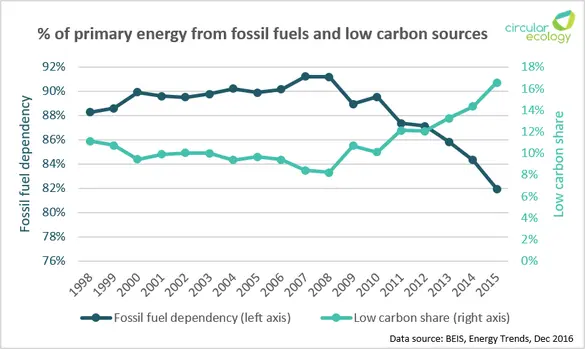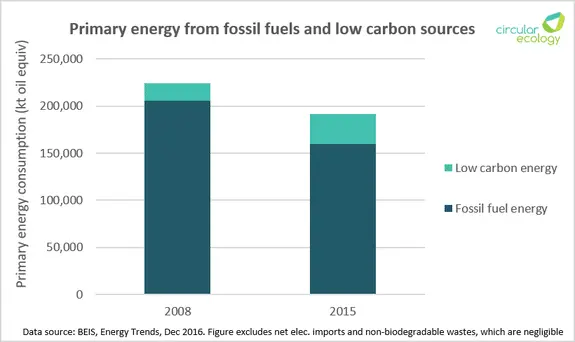Carbon Footprint, Energy, News, Sustainability
Low Carbon Energy Reaches Record High
Blog by Stephen Allen
The contribution of low carbon energy in the UK has risen to an all-time high, while our dependence on fossil fuels has fallen to a record low. Such good news stories seem rare when it comes to the environment – so how did we get here?
Percentage Shares
In 2005, I began working in the fields of energy and sustainability. At the time and in the following few years, a recurrent theme was that our dependence on fossil fuels in the UK was growing, and that low carbon energy was floundering. As you can see on the graph below, by 2008 fossil fuels met over 91% of our primary energy needs, while our low carbon energy share continued its downward trend – what a depressing statistic!
It’s amazing how rapidly things can change. Back in 2008, and looking at the record of the previous decade, I did not imagine that the graph would flip so rapidly over the next few years. By 2015, current UK Government stats show that our fossil fuel dependency dropped to 82%, while low carbon energy share shot up from 8% in 2008 to 17% in 2015. What a turnaround!
So how have we done it?
Total Energy Use
First, as you might guess, we’ve reduced our total use of fossil fuels and increased our production of low carbon energy, mainly through an increase in renewables.
But there’s something else going on that’s helped our low carbon share grow: we’ve reduced our total use of primary energy.
The figure below, which compares 2008 to 2015, shows all three of these trends. The reduction in overall primary energy consumption is important, because it means our growing base of low carbon energy is contributing to a smaller overall demand. This makes the low carbon share larger than it would otherwise be.
Over the period since 2008 there has, of course, been an economic downturn, which will have depressed energy use, but UK GDP has nevertheless grown overall by 8% between 2008 and 2015, while primary energy consumption has gone down by 14%. This continues a long-term trend of the UK economy’s energy efficiency improving over time.
From a climate change perspective, this good news isn’t the whole story. While energy use within the UK is an important part of our total carbon footprint, there are other key contributors, including the embodied carbon of everything we import from abroad. And as I described in a previous blog, this has generally been growing in recent decades.
We need further, massive changes to hit the targets implied by climate science and required by the UK’s Climate Change Act and international Paris Agreement, but it’s worth pausing for a moment to recognise that real progress has been made on cleaning up our energy supplies – long may it continue!
If you like this post please consider sharing it on social media using the buttons below or signing up to our newsletter.



